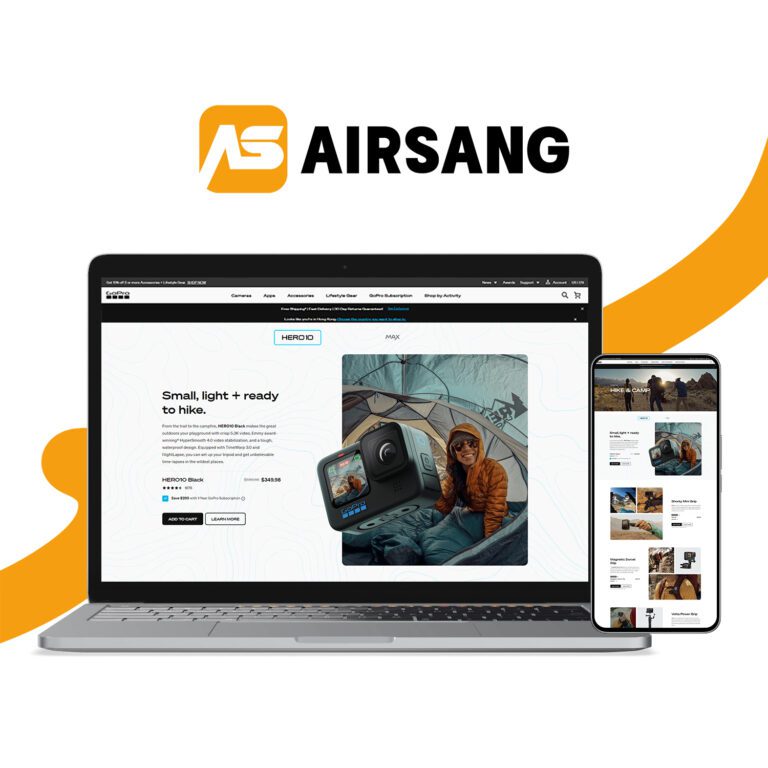Can People Use Shopify to Sell Peptides?

Introduction
Can people use Shopify to sell peptides? This question has been growing in relevance as more entrepreneurs look toward health, fitness, and research markets for online business opportunities. While Shopify is a powerful eCommerce platform, selling peptides isn’t as straightforward as launching a T-shirt store or a cosmetics brand. It involves understanding Shopify’s policies, navigating legal gray areas, and designing a store that communicates trust and compliance.
In this article, we’ll explore the challenges and opportunities of selling peptides on Shopify, how design plays a crucial role in presenting such products, and why professional support can make the difference between approval and suspension.
Understanding Shopify and Its Policies
Why Choose Shopify?
Shopify is one of the most widely used eCommerce platforms in the world. Its intuitive dashboard, extensive app ecosystem, and scalability make it attractive to entrepreneurs of all sizes. Businesses from small start-ups to global brands rely on Shopify for secure payments, customizable storefronts, and seamless integration with marketing tools.
But while Shopify empowers entrepreneurs, it also enforces strict rules about what can and cannot be sold on its platform.
Shopify’s Acceptable Use Policy (AUP)
Shopify’s AUP restricts products that are unsafe, illegal, or regulated. This includes items like controlled substances, pharmaceuticals, and certain supplements. Peptides often fall into a regulated category depending on how they’re marketed. For instance:
- Permitted scenario: If labeled as “for research use only,” not for human consumption.
- Prohibited scenario: If marketed as a treatment, performance enhancer, or supplement for people.
Shopify doesn’t want to be liable for enabling medical claims or facilitating unapproved substances. Therefore, sellers must tread carefully.
What Are Peptides?

Basic Definition
Peptides are short chains of amino acids that occur naturally in the body and can be synthesized for various applications. They play roles in biological processes, from cell signaling to muscle repair.
Why People Sell Peptides Online
- Research purposes: Universities and laboratories purchase peptides for experiments.
- Fitness communities: Some peptides are marketed for muscle growth or fat loss, though many are not approved for human use.
- Cosmetic use: Certain peptides appear in skincare, marketed for anti-aging effects.
The Legal Gray Zone
The challenge is that while peptides may be legal to produce and sell in one context (e.g., research), marketing them for another (e.g., human consumption) can be illegal. This creates uncertainty for entrepreneurs who want to sell peptides online.
Can People Use Shopify to Sell Peptides?

The Short Answer
Yes, but with conditions. Shopify doesn’t outright ban all peptides. The key is compliance: both with Shopify’s AUP and with the laws of the regions where the store operates.
Common Challenges
- Regulatory compliance: Different countries treat peptides differently. In the U.S., some peptides are classified under the FDA’s jurisdiction. In the EU, regulations vary by member state.
- Payment processors: Even if Shopify approves your store, gateways like Stripe or PayPal may refuse peptide transactions.
- Marketing restrictions: Claims like “build muscle fast” or “cure skin problems” will trigger policy violations.
Realistic Scenarios
- A U.S. lab supply company can sell peptides on Shopify if they are marketed as “research chemicals” with proper disclaimers.
- A fitness influencer trying to sell peptides as performance enhancers will likely face store suspension.
- A skincare company selling topical peptide products may be allowed, provided claims are modest and supported.
Designing a Shopify Store for Peptide Sales
Why Design Matters More for Restricted Products
When products are legally sensitive, design isn’t just about aesthetics—it’s about compliance, trust, and transparency. A clean, professional storefront reassures both customers and regulators.
Transparency in Layout
- Product pages should clearly state usage disclaimers (“for research use only”).
- Footer sections can include compliance statements and links to legal documents.
- Checkout processes can require acknowledgment of terms before purchase.
Visual Cues of Legitimacy
- High-quality photography establishes professionalism.
- Consistent branding creates confidence that the store is not a fly-by-night operation.
- Certificates, licenses, or lab accreditations should be visible.
Avoiding Misleading Design
Designers must avoid visuals that suggest peptides are recreational or medical treatments. Clear separation between research products and other product categories helps mitigate risks.
Compliance and Payment Gateway Considerations
Shopify Payments Limitations
Shopify Payments, the platform’s default gateway, may not support peptide transactions. This means sellers often need third-party gateways.
Alternative Payment Gateways
- Authorize.Net
- Square (with approval)
- Specialized high-risk processors
Each has unique policies, and design must accommodate them—for example, including extra verification steps.
Role of Store Design in Payment Approval
Payment processors review websites before granting approval. A sloppy, confusing design can raise red flags, while a polished, transparent store increases approval chances.
The Customer Experience Factor
Educating Customers
Selling peptides isn’t about flashy marketing—it’s about education. A well-designed Shopify store should include:
- FAQ sections about legal use.
- Blog posts discussing peptide science responsibly.
- Resource guides for labs and researchers.
Building Trust Through Design
Features like secure checkout badges, SSL certificates, and transparent policies reassure cautious buyers.
Mobile-First Design
Most Shopify users shop from mobile. A peptide store must work flawlessly on smartphones, with disclaimers and disclaimers formatted clearly on small screens.
International Sales: A Complicated Reality
Selling Across Borders
If you plan to sell peptides internationally, compliance doubles in complexity. Shipping restrictions, customs declarations, and labeling laws vary widely.
Store Design for Global Sales
- Multi-language support for disclaimers.
- Currency switchers for international buyers.
- Location-based pop-ups warning about restrictions.
These elements must be baked into the Shopify design, not treated as afterthoughts.
Risks of Ignoring Compliance
- Store suspension: Shopify can shut down your store without warning.
- Payment freezes: Gateways can hold funds if they suspect policy violations.
- Legal repercussions: Regulatory bodies may pursue sellers for unapproved marketing.
Design alone can’t eliminate these risks, but poor design can amplify them.
How Professional Design Helps Peptide Sellers
Strategic Layouts
Professionals know how to design stores that emphasize disclaimers while keeping the user journey smooth.
Balancing Conversion With Compliance
An amateur might plaster disclaimers everywhere, creating friction. A professional team integrates them subtly but effectively.
Avoiding Red Flags
Payment processors and regulators often judge a store by its design first. An unpolished store suggests risk.
Conclusion
So, can people use Shopify to sell peptides? The answer is yes—under certain conditions. Compliance with Shopify’s Acceptable Use Policy, regional regulations, and payment gateway requirements is essential. But just as critical is the design of the store itself.
A peptide store must build trust, showcase transparency, and avoid misleading claims. The right design choices can mean the difference between being approved or suspended.
If you’re considering launching a Shopify store for peptides or other regulated products, working with experienced professionals can save you time and protect your business. At AIRSANG, we specialize in creating Shopify websites that balance compliance with conversion-driven design, ensuring your store not only looks professional but also operates within the rules.
















